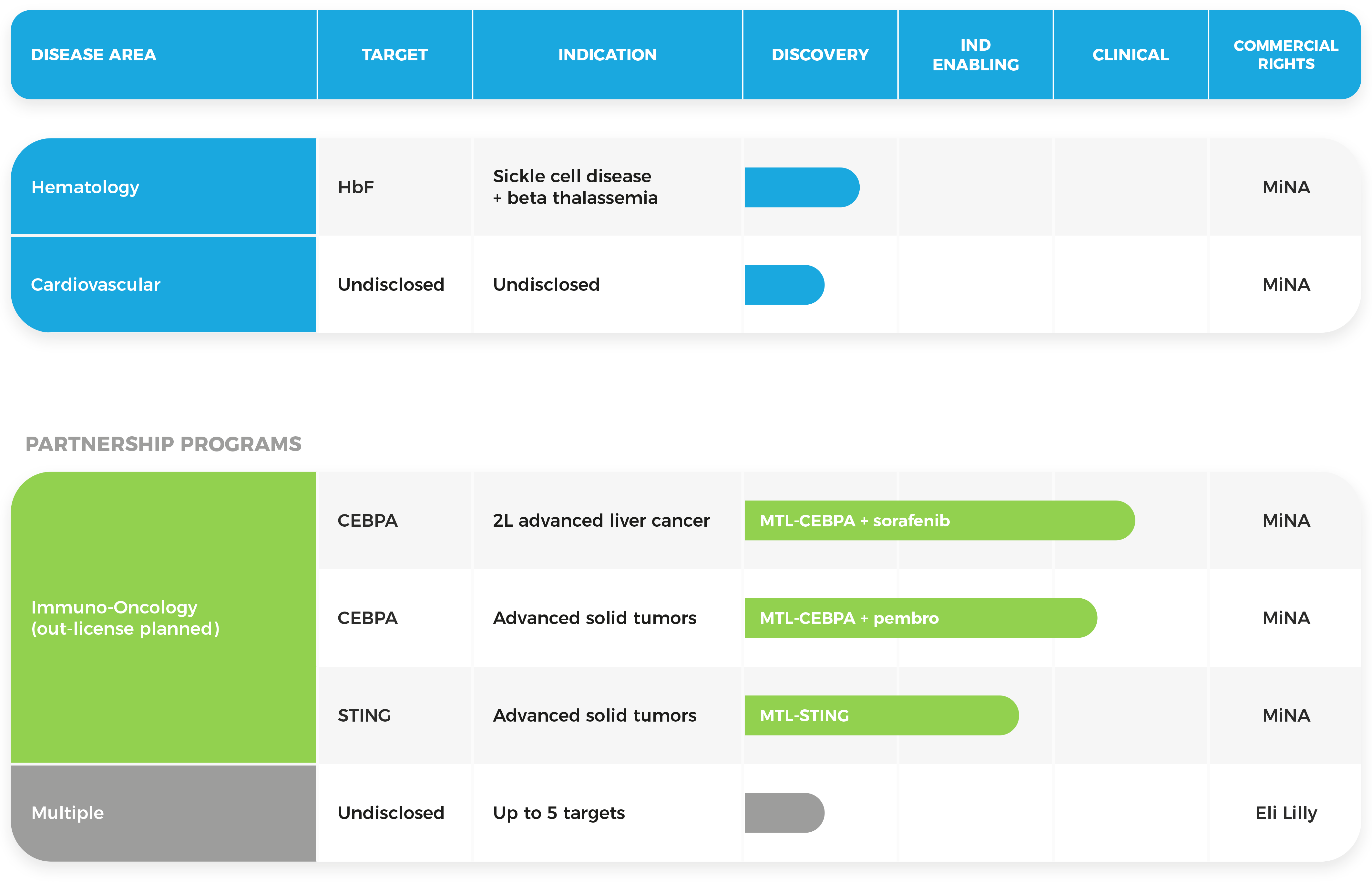Through transcriptional activation, RNAa therapeutics promise a revolution in our ability to modulate previously undruggable targets.
Through transcriptional activation, RNAa therapeutics promise a revolution in our ability to modulate previously undruggable targets.
DEVELOPMENT PROGRAMS

HbF PROGRAM
Sickle Cell Disease & Beta Thalassemia
Sickle Cell Disease (SCD) and Beta Thalassemia are severe blood disorders that together affect more than 5 million people around the world. Both are inherited diseases caused by mutations in the HBB gene, which is responsible for producing a key component of hemoglobin. Without this component, red blood cells become misshapen and are less efficient at transporting oxygen around the body. Patients with these diseases experience painful symptoms, require chronic hospitalisation and face early mortality. Currently, patients have very limited access to curative treatments that are also highly invasive and entail severe, life-long, risks.
RNAa approach
MiNA’s HbF program is a potential first in vivo functional cure for SCD and Beta Thalassemia. MiNA’s treatment approach is to increase transcription of the HBG gene, enabling patients to produce enhanced levels of fetal hemoglobin (HbF). HbF is a redundant form of hemoglobin which, when produced at sufficient levels, has been demonstrated to rescue or cure patients with SCD or Beta Thalassemia. RNAa therapeutics enable, for the first time, specific induction of HbF to levels that are associated with functional cure. MiNA’s HbF program uses a liposome that efficiently delivers to patient cells via intravenous infusion, without the need for harmful preconditioning or complex cell engineering. MiNA’s HbF program is currently in pre-clinical development.
MTL-CEBPA
The CEBPA gene encodes CCAAT/enhancer binding protein alpha (C/EBP-α), a transcription factor that acts as a master regulator of cell lineage determination and differentiation of myeloid cells and other cells types around the body. Myeloid cells are frequently dysregulated in the microenvironment of solid tumours and are understood to be an important resistance hurdle for many anti-cancer medicines. Restoring CEBPA expression in myeloid cells is hypothesised to alter immune cell populations in the tumour microenvironment and improve the efficacy of cancer therapies in solid tumour malignancies.
For more information on MTL-CEBPA check out these publications:
MTL-CEBPA is a new medicine initially being developed as a combination therapy in cancer. MTL-CEBPA is designed to reduce immune suppression of myeloid cells by restoring C/EBP-α protein to normal levels using the RNA Activation mechanism.
MTL-CEBPA has been evaluated in clinical trials in more than 130 subjects. MTL-CEBPA has been evaluated in patients with advanced liver cancer; as a monotherapy in 39 patients and in combination with standard of care Sorafenib in 36 patients. In addition MTL-CEBPA has been evaluated in 50 patients with advanced solid tumor malignancies in combination with cancer immunotherapy Pembrolizumab.

